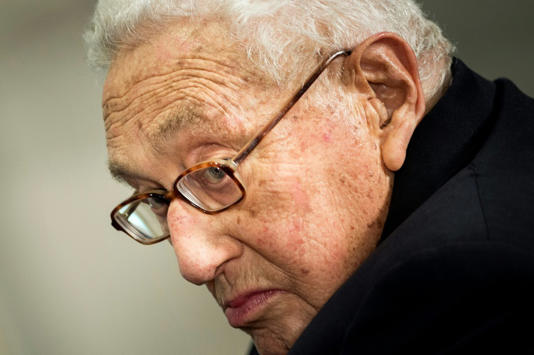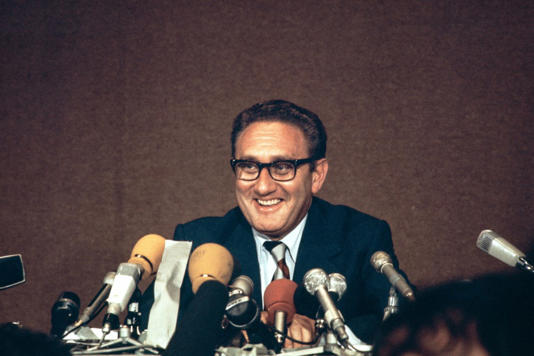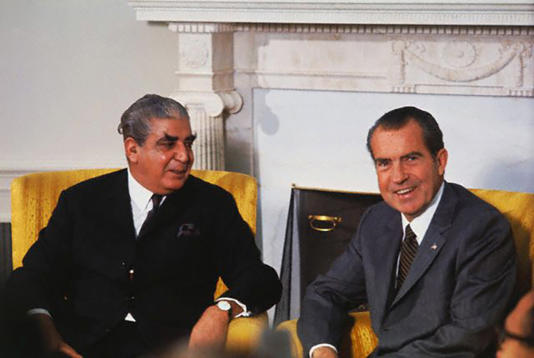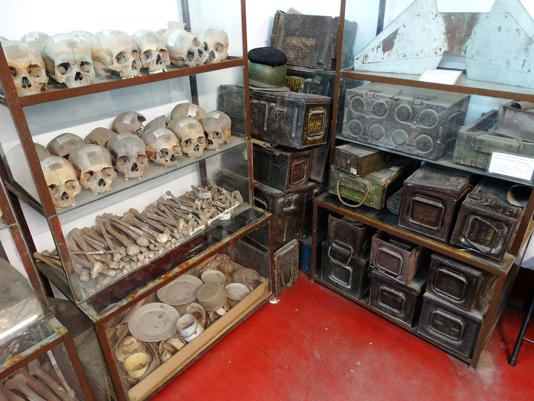



December 1, 2023
“A TRILLION LIGHT-YEARS FROM THE NEAREST POINT OF LIGHT”
A place where their evil existence endures among themselves infinitely in time where the demonic bitches and bastards can only get a glimpse of light to remind them of that from which they were cast. . . a constant reminder of their wretched, earned condition.
This is a place where the criminal, degenerate, devils like Hitler and Kissinger and all of the other mass murders and their supporters need to be confined.
The tragedy is the reality that these bastards go unpunished and are even praised for their evil deeds.
As global tributes to late US diplomat Henry Kissinger poured in, his death stirred fury across Southeast Asia.
Homage has been paid to Kissinger’s realpolitik and intellectual heft as secretary of state to US presidents Richard Nixon and Gerald Ford.
But in Southeast Asia, millions have remembered when the United States bombed swathes of Laos and Cambodia during the Vietnam War, an onslaught ordered by Kissinger and Nixon.
“Every single time I hear Kissinger’s name, my blood boils,” Sera Koulabdara, who fled Laos with her family at age six, told AFP.
The bombing was a failed attempt to disrupt rebel movements and strengthen Washington’s hand as it pulled out of Vietnam.
Koulabdara said her father remembered the bombing.
“He described it as a roaring rain, but instead of water, it was flames.”
Laos became the world’s most-bombed country per capita from 1964 to 1973 as the United States dropped more than two million tonnes of ordnance, equal to a plane load of bombs every eight minutes.
Since then, unexploded ordnance (UXO) in the impoverished country has killed or wounded at least 20,000 Laotians.
“The life-threatening problem that exists in Laos is a direct result of the US’s barbaric decisions and one of the main architects, Kissinger,” said Koulabdara, who heads advocacy group Legacies of War.
Demining work continues.
“Laos is still the country most polluted by cluster munitions in the world,” said Reinier Carabain of Handicap International –- Humanity & Inclusion, an organisation that has destroyed nearly 47,000 pieces of UXO since 2006.
“Every day, civilians in a quarter of the villages in Laos run the risk of being killed or injured by explosive remnants”.
– ‘I am hopeless’ –
In neighboring Cambodia, the bombing campaign helped fuel the rise of the Khmer Rouge regime, which killed about two million Cambodians between 1975 and 1979 in acts later ruled as genocide by the kingdom’s UN-backed court.
Former leader Hun Sen had long called for Kissinger to be charged with war crimes.
UXO still litter the countryside, killing an estimated 20,000 Cambodians in the past four decades.
Heng Ratana, director general of the Cambodian Mine Action Centre, told AFP the decision to bomb “our beautiful country and peaceful people by destroying everything” was Kissinger’s true legacy.
“I am hopeless,” said 60-year-old Cambodian Sam En, who was blinded and lost the use of both arms after he tried to remove a cluster bomb at his Kratie province home in 2014.
Sam En, who relies on his daughter for care, said he felt differently about Kissinger after his death.
“Before I felt angry. But now he has died, so as a Buddhist follower, I forgive him.”
– ‘Suffering’ –
In Vietnam, where some see Kissinger’s rapprochement with China as paving Beijing’s rise to dominance in the region, he leaves a complex legacy.
Kissinger was awarded the Nobel Peace Prize for negotiations to end the Vietnam War, even though the conflict did not immediately finish and his North Vietnamese counterpart, Le Duc Tho, declined to accept the prize.
Pham Ngac, an interpreter for North Vietnam during the Paris Peace Accords negotiation, called Kissinger an “outstanding” diplomat.
Kissinger’s unwavering support for brutal regimes still haunts Latin America
SANTIAGO, Chile (AP) — In Chile, leftists were tortured, tossed from helicopters and forced to watch relatives be raped. In Argentina, many were “disappeared” by members of the brutal military dictatorship that held detainees in concentration camps.
It all happened with the endorsement of Henry Kissinger, the former U.S. secretary of state who died Wednesday at age 100.
As tributes poured in for the towering figure who was the top U.S. diplomat under Presidents Richard Nixon and Gerald Ford, the mood was decidedly different in South America, where many countries were scarred deeply during the Cold War by human rights abuses inflicted in the name of anti-communism and where many continue to harbor a deep distrust of their powerful neighbor to the north.
“I don’t know of any U.S. citizen who is more deplored, more disliked in Latin America than Henry Kissinger,” said Stephen Rabe, a retired University of Texas at Dallas history professor who wrote a book about Kissinger’s relationship with Latin America. “You know, the reality is, if he had traveled once democracy returned to Argentina, to Brazil, to Uruguay — if he had traveled to any of those countries he would have been immediately arrested.”
There is likely no starker example of Kissinger’s meddling with democracy in the region and then supporting brutality in the name of anti-communism than Chile.
In Chile, Kissinger played a key role in the efforts to do everything in the United States’ power to undermine and weaken the socialist government of Salvador Allende, who was elected president in 1970. Kissinger then used his sway to prop up the military dictatorship of Gen. Augusto Pinochet, who rose to power in a 1973 coup, repeatedly refusing to call attention to the numerous human rights violations of Pinochet’s regime, which murdered opponents, canceled elections, restricted the media, suppressed labor unions and disbanded political parties.
Kissinger long alleged that he wasn’t aware of the human rights abuses that were committed in the region, but records show that this wasn’t the case, said Peter Kornbluh, a senior analyst at the National Security Archive that is in charge of its Chile project.
“The declassified historical record, the documents that Kissinger wrote, read and said, leave no doubt that he was the chief architect of the U.S. policy to destabilize the Allende government and that he was also the chief enabler of helping the Pinochet regime consolidate what became a bloody, 17-year infamous dictatorship,” Kornbluh said.
Kissinger was “somewhat obsessed” with Allende’s government, fearing that the rise of a socialist government through democratic means could have a contagion effect in the region, said Chilean Sen. José Miguel Insulza, a former secretary general of the Organization of American States who served as a foreign policy adviser in Allende’s government.
“For him, any action that meant defending the national interest of the United States seemed justifiable,” Insulza said.
Kissinger feared what Allende’s government could mean for the world.
“In geopolitical terms, Kissinger considered the rise of a left-wing coalition to power through democratic means even more dangerous than the example set by Cuba. Indeed, this could be replicated in Western countries with powerful communist parties in terms of electoral influence, such as in Italy,” said Rolando Álvarez, a history professor at the University of Santiago, Chile.
Kissinger was seemingly unaffected by tales of suffering at the hands of military officers, even though his own family arrived in the U.S. as refugees who had to flee Nazi Germany in his teens.
“By the end of 1976, State Department aides were telling Henry Kissinger, a Jew, that Jews were being targeted in Argentina,” Rabe said. “And Kissinger just didn’t do anything.”
In Chile’s neighbor, Argentina, a military junta rose to power in 1976 vowing to combat leftist “subversives.” Kissinger made clear he had no objections to their brutal tactics and repeatedly ignored calls from other State Department officials to raise more concerns about human rights violations.
In a June 1976 meeting, Kissinger had a message for Argentina’s foreign minister, Admiral César Augusto Guzzetti: “If there are things that have to be done, you should do them quickly.” He later reiterated that support during a meeting in October 1976 — a time when Argentine officials were worried the U.S. would raise human rights concerns amid increasing reports of torture and disappearances.
Guzzetti was “overjoyed” at the meetings, and “had felt that Kissinger had given him the signal that the United States had no objection to wholesale slaughter,” Rabe said.
Kissinger had a similar attitude toward other military dictatorships in the region, including in Uruguay and Brazil, and never raised objections to what was known as Operation Condor, a clandestine program that allowed military regimes in that part of the world to illegally pursue, detain, torture and assassinate political dissidents who fled their countries.
That attitude made a lasting imprint on Latin Americans’ psyche.
“At least here in Latin America, what I perceived in Henry Kissinger’s vision is very negative because it’s a kind of anything goes mentality. No matter how brutal the dictatorship is that must be supported, it doesn’t matter,” said Francisco Bustos, a human rights lawyer and professor at the University of Chile.
Decades later, the effects of that policy are still being felt in a region that feels the U.S. would go to any lengths to support its interests.
“There is a segment of political parties and movements in Latin America, including Chile, where the relationship with the United States is essentially marked by anti-imperialism. This perspective essentially sees any U.S. administration, whether Democratic or Republican, liberal, progressive, or ultraconservative, as more or less the same,” said Gilberto Aranda, an international relations professor at the University of Chile.
Although U.S. intervention in a region that was often referred to as “America’s backyard” has a long history, Kissinger seemed to take that into overdrive.
It’s no surprise then that one of the harshest reactions to Kissinger’s death came from a Chilean official.
“A man has died whose historical brilliance never managed to conceal his profound moral misery,” Chile’s ambassador to the United States, Juan Gabriel Valdes, posted on the social media platform X. Chile’s leftist President Gabriel Boric then retweeted the message.
___
Politi reported from Buenos Aires, Argentina.
“He was the most… persuasive diplomat, to the benefit of the US,” the 88-year-old former diplomat told AFP.
Neither the Vietnamese nor Cambodian governments responded to AFP requests for comment on Kissinger’s death.
“He was the one that helped cause a lot of suffering for Vietnamese people,” Tran Quy Tuyen, a soldier in Hanoi’s air defense division between 1965 and 1973, told AFP.
I guess many Vietnamese would say that he should have died years ago,” the 78-year-old said.
bur-rbu/dva
Fact Check: Did Henry Kissinger Say He’d Be Antisemitic if Not Jewish?
Former U.S. Secretary of State Henry Kissinger, who died Wednesday at the age of 100, has left a divisive legacy of political and foreign policy maneuvering that was both lauded and derided across the globe.
Seen by some as a pragmatic diplomat, awarded a Nobel prize for reaching a ceasefire and peace agreement to the Vietnam War, he has also been accused of enabling war crimes, including his involvement in the orchestration of U.S. bombing in Cambodia.
Among the conversations reflecting on his legacy was one quote that appeared to suggest Kissinger would have been antisemitic had it not been for his Jewish birth.
The Claim
A post on X, formerly Twitter, by user @hannahgais, viewed 905,000 times, stated “Kissinger: ‘If it were not for the accident of my birth, I would be antisemitic…. Any people who has been persecuted for two thousand years must be doing something wrong.'”
The Facts
The quote is taken from Walter Isaacson’s 1992 biography Kissinger.
Isaacson described the book as neither an authorized nor unauthorized biography, stating that while Kissinger did not approve the book before publication, he provided “two dozen formal interviews,” access to public and private papers, and asked “family members, former aides, business associates, and past presidents” to contribute.
Isaacson spoke not only to Kissinger but dozens of colleagues and bosses including late former President Richard Nixon.
The quote on X appears in a section of the book describing Kissinger’s attitude toward his Judaism and how his faith was viewed by Nixon. According to Kissinger, Nixon felt Jewish people “put the interests of Israel above everything else” and “that their control of the media made them dangerous allies.”
Isaacson wrote that following Israel’s violation of a 1973 ceasefire with Egypt, “Kissinger grumbled at one WSAG meeting, ‘If it were not for the accident of my birth, I would be anti-Semitic.’
“In other moments of exasperation, he would note that “any people who have been persecuted for two thousand years must be doing something wrong.'”
The Washington Special Actions Group, or WSAG, was a high-level U.S. government crisis committee formed under the Nixon administration.
Notably, the National Security Archive later discovered that Kissinger “gave a green light” for Israel to breach the 1973 ceasefire.
What was not mentioned alongside the citation on X was Isaacson’s suggestion that Kissinger’s comments may have not been intended seriously.
In the same paragraph as the quote attributed to Kissinger, the book states: “As was often the case, Kissinger’s attitude toward his Jewishness was reflected in his humor, much of it directed at the pressure on him from ‘my coreligionists’ to forgive any Israeli sin.”
While this does not alter what Isaacson said, or verifiably confirm his intent, this argument is absent from the citation on X.
This same section of the biography also notes the commitments Kissinger made to his religion, insisting, Isaacson writes, that his son had a bar mitzvah, and his “emotional commitment to the survival of Israel,” quoting Kissinger telling Jewish leaders: “‘How can I, as a Jew who lost thirteen relatives in the holocaust, do anything that would betray Israel?”‘
The source of the quote is attributed only to a Washington Special Actions Group meeting, although Isaacson states that most documentary material came from the “Nixon Presidential Papers Project.”
While Isaacson did not state where Kissinger was quoted, the conversation took place while Kissinger was U.S. secretary of state.
Isaacson notes that while in office Kissinger had secretaries and aides listen in on his phone conversations and take notes which “evolved into a full-fledged taping system with a battery of secretaries who would transcribe the talks overnight.”
The Ruling
Needs context
The quote is taken from Walter Isaacson’s 1992 biography Kissinger, attributed to a meeting Kissinger held in 1973 after Israel breached a ceasefire between it and Egypt.
While it was accurately quoted, Kissinger’s comments were, according to Isaacson, intended with humor, also noting the late secretary of state’s commitments to his faith.
FACT CHECK BY Newsweek’s Fact C

Religion News Service
Religion News Service
How Henry Kissinger enabled the Bangladeshi Hindu genocide and let us forget it
Story by Religion News Service •
12h
(RNS) — In the myriad reflections about Henry Kissinger’s legacy in the days after his death, much has been written about how realpolitik turned human rights into a transactional affair.
But much of what has been written or said about Kissinger in recent days still does not capture his enabling of and callousness to genocides and pogroms that would foment cataclysmic human suffering and displacement for the next half-century.
While Kissinger has long been vilified for his role in the destruction of Cambodia, his callous response to the 1971 Bangladeshi genocide, where between 200,000-300,000 Bengalis, most of whom were Hindu, were killed and where up to 400,000 Hindu women were raped after imams, aligned with West Pakistan, declared them “war booty,” has long been overlooked.
Nearly 10 million people, mostly Hindus, fled as a result of the monthlong campaign by Pakistan to crush Bengali dissent and eliminate Hindus and secular Muslims.
Gary Bass, who wrote “The Blood Telegram,” a book about American diplomat Archer Blood’s unsuccessful attempts to intervene in stopping Pakistan from committing the genocide, noted that Kissinger not only refused to intervene, but he also downplayed and even joked about the pogrom and Pakistani President Agha Muhammad Yahya Khan’s coordination of the massacres.
Bass noted that, in recounting the role the Pakistani president played in helping him get into China, Kissinger quipped: “Yahya hasn’t had such fun since the last Hindu massacre!”
Kissinger’s promotion of Pakistan as a key ally was the cost of doing business in South Asia, where the Nixon administration saw supporting Khan’s military rule in East Pakistan as an essential counterweight to Soviet influence in the region, particularly in Hindu-majority India.
But the genocide not only created an influx of Hindu refugees in India, the U.S. government’s unwillingness to declare it a genocide — even after Richard Nixon left office in disgrace and Kissinger’s term as secretary of state ended — also made it a footnote both in modern South Asian history and in Kissinger’s career.
Most Americans are to this day unaware of the sheer destruction of the Hindu population in Bangladesh in just one bloody March in 1971.
Bangladesh’s ruling Awami League ultimately held a number of those who organized the murders and rapes responsible in 2013 — including death sentences for some of the surviving leaders of the genocide. But some Western journalists noted there was little coverage in comparison to the scale of the violence and trauma. Journalist Philip Hensher wrote that the erasure of the genocide enabled by Kissinger was furthered by “the shocking degrees of denial among partisan polemicists and manipulative historians.”
While many Bangladeshis do remember the genocide and blame Kissinger for recreating a partition-type mass trauma, it’s imperative that remembering Kissinger’s legacy includes bringing the atrocities he helped create back to the forefront.
The Bangladeshi Hindu population will never return to its pre-1971 level, but giving the genocide proper recognition as one — and Kissinger’s complicity in it — might begin the process of making its victims visible. That alone would add another shovel of dirt to the myth and coffin of realpolitik.
(Murali Balaji is a journalist and a lecturer at the Annenberg School for Communication at the University of Pennsylvania. His books include “Digital Hinduism” and “The Professor and the Pupil,” a political biography of W.E.B. Du Bois and Paul Robeson. The views expressed in this commentary do not necessarily reflect those of Religion News Service.)


















